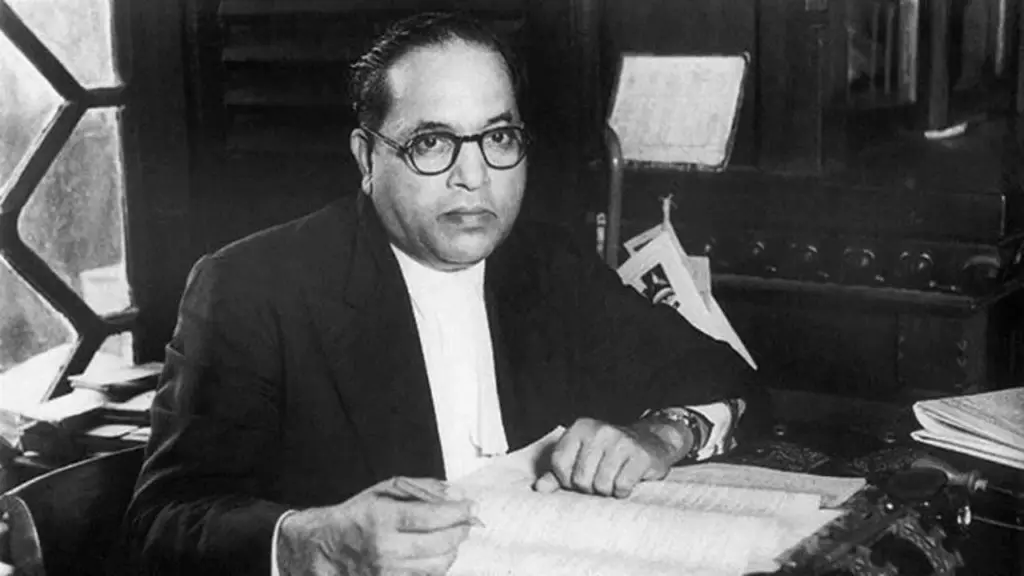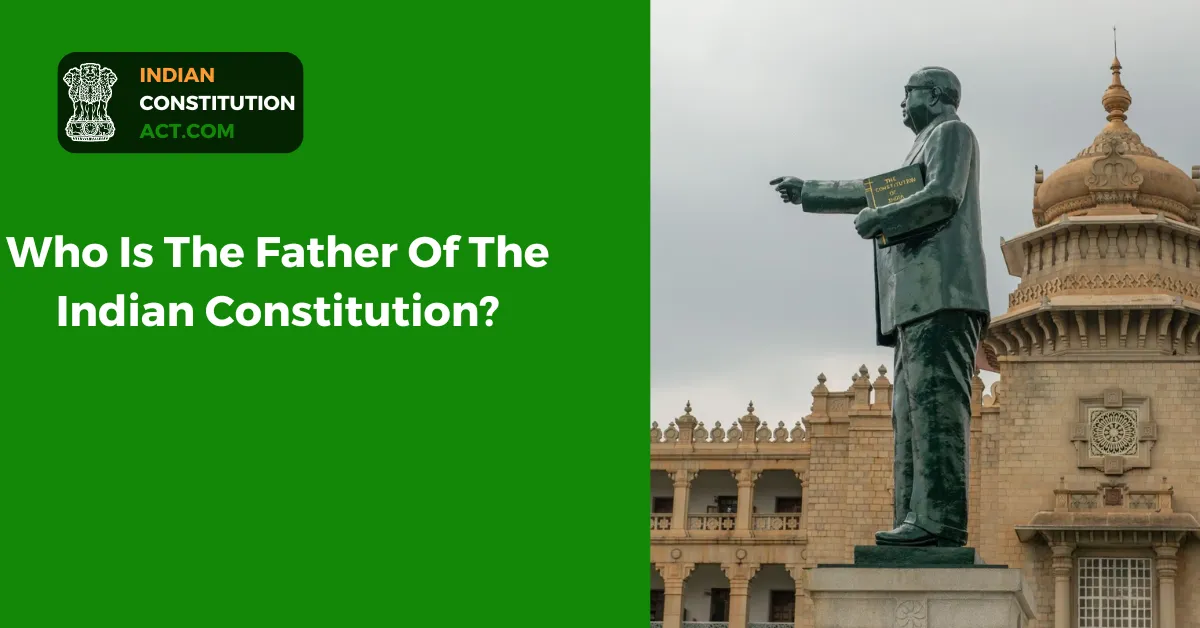Father Of The Indian Constitution: The Indian Constitution is the supreme law of India. It is the longest-written national constitution in the entire world. But still, a lot of people are now aware that who is the father of the Constitution of India. So here we are going to tell you about it as it is very important to learn and it is most important for the students who are preparing for UPSC exams.
Table of Contents
What is the Indian Constitution?
The Indian Constitution is the supreme law of India. It is a full-fledged document that lays down the framework that demarcates the fundamental political code, powers, procedures, duties, and structure of the government institutions and sets out directive principles, duties of citizens, and fundamental rights. These things are based on the proposal suggested by M.N. Roy.
Our Constitution was adopted by the Constituent Assembly of India on 26th November 1949 and became effective on 26th January 1950. The Constitution replaced the Government of India Act 1935 as the country’s fundamental governing document and also the Dominion of India became the Republic of India. The entire India celebrates the Constitution on 26th January every year as Republic Day.
Our Constitution declared India a sovereign, socialist, secular, and democratic republic, and also makes sure it’s citizen’s justice, equality, and liberty, and endeavors to promote fraternity. According to the research, the original 1950 constitution is preserved in the nitrogen-filled case at the Parliament House.
Also read: What Is Article 370 Of The Indian Constitution?
Who Is The Father Of The Indian Constitution?

The Father of the Indian Constitution is Dr Bhimrao Ambedkar. On August 29, 1947, the Constituent Assembly officially set up a Drafting committee, This committee was headed by Dr. Bhimrao Ambedkar.
Dr. Bhimrao Ambedkar Wikipedia
Dr. Bhimrao Ramji Ambedkar was an Indian jurist, economist, social reformer, and political leader who headed the committee drafting the Indian Constitution from the Constituent Assembly. he was born on 14th April 1891 in Mhow, Central India Agency, British India (Now Madhya Pradesh, India). He took his last breath on 6th December 1956 in New Delhi, India at the age of 65.
He died due to diabetes. He was a person who devoted his life to helping the oppressed. he passed away at his home in Delhi while he was sleeping. Because of his intense involvement in Buddhist involvement, his body was cremated by Buddhist customs on the Dadar Chowpati beach. In 1990, he was awarded with India’s highest award, the Bharat Ratna Award.
He served as Law and justice minister in the first cabinet of Jawaharlal Nehru. He was the inspiration for the Dalit Buddhist movement after renouncing Hinduism. After Mahatma Gandhi, he is hailed as the greatest leader of independent India.
He was the fourteenth child in a Maratha family. He was born to Ramji Maloji Chakpal and Bhimabai. His father was employed as a military school instructor. In 1904, his family relocated to Mumbai and he enrolled at Elphinstone High School where he pursued further education. He completed his school in 1907 with the King of Baroda’s help.
After schooling, he continued his studies in undergraduate education at the University of Bombay where he earned a BA in Political Science and Economics in 1912.
Dr. Bhimrao Ambedkar Drafted The Indian Constitution
Jawaharlal Nehru invited Dr. Bhimrao Ambedkar to serve as the Dominion of India Law Minister on 15th August 1947. After two weeks he was officially appointed Chairman of the Drafting Committee of the Indian Constitution for the future Republic of India.
The Constitution of India guarantees and protections for a wide range of civil liberties for individual citizens which includes freedom of religion, outlawing of all forms of discrimination, and the abolition of untouchability.
